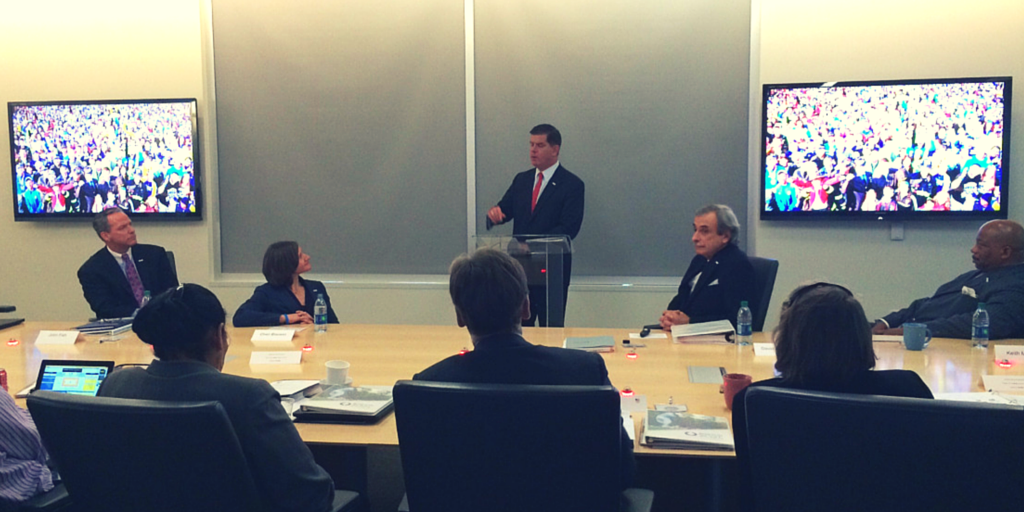Olympics opponent becomes a believer
By Shirley Leung Globe Staff December 10, 2014
Conor Yunits, a leader of No Boston Olympics, is defecting from the group, saying he now supports the effort to have the city host the 2024 Summer Games.
The about-face raises a few questions: Who got to you, Conor? Did someone tell you that you would never work in this town again? After all, the people behind our Olympic bid are among the most powerful folks around, from Suffolk Construction chief executive John Fish to Boston Mayor Marty Walsh.
And the timing? It couldn’t be more perfect. Boston makes a final presentation next week to the board of the United States Olympic Committee, which could make a decision soon after on which city will get the US bid. Enthusiastic public support matters.
“Nobody got to me,” insists Yunits, 34, an executive at Liberty Square Group, a public relations and political operative shop. “If I was to be gotten to, they would have gotten to me before the bid was done.”
Yunits was one of four thirtysomething leaders of No Boston Olympics, a grass-roots campaign that portrayed hosting the games as a vanity project and one big cost overrun waiting to happen. It’s hard to believe he didn’t fold under pressure — even his own father, former Brockton mayor Jack Yunits, didn’t approve of this extracurricular activity.
The younger Yunits said he has no regrets about being part of the opposition. He certainly seemed to get into it with scathing tweets such as “Hosting Olympics in Boston is just like a dinner party, if you built a brand new dining room and never used it again.” Then there’s my personal favorite: “If Boston Olympics end with invasion of Rhode Island I could maybe get on board.”
We’re not taking over our neighbor to the south, but Yunits has changed his mind. With the bid in, he got what he wanted, which was to push for more transparency in the process. Boston 2024, the private partnership planning our Olympic bid, recently formed a citizens advisory group, launched an online portal to solicit comments, and pledged to hold monthly meetings if Boston gets to go for the gold.
The more Yunits learned about our city’s bid, the more he liked it. Yunits now says he truly believes Walsh won’t mortgage the city just to host a bunch of athletes and tourists — after all, he’ll likely be running for reelection. To keep costs down, organizers are proposing temporary sports venues, piggybacking on planned transportation improvements, and leaning on facilities owned by universities.
“Boston can do this,” said Yunits. The plan “is pretty creative. It’s probably the best bid that has been put forward.”
The other finalists are Los Angeles, San Francisco, and Washington, D.C.
If Boston gets the nod, Boston 2024 and the Walsh administration should create a public process that begins the very next day. There is much to be hashed out before a formal proposal is submitted to the International Olympic Committee in September. In that round, the United States competes with other entries from around the world, with the IOC making a selection in 2017.
Boston 2024 has sketched out 33 possible sites for venues, and president Dan O’Connell vows to hold a hearing in each community where there is a proposal. If the neighborhood says no, on to the next site. If this is done right, we should all be sick of seeing the Olympic rings and talking about where the main stadium could be built.
And if we don’t get the US bid, I hope both Boston 2024 and No Boston Olympics stick around. More than ever, we need a robust dialogue on how we can build middle-class housing and better public transportation if we want to keep the best and the brightest here.
Just take a look at what happened to New York City, which lost the 2012 Summer Olympics to London. The games forced New York to do comprehensive planning on a short timetable. While the Opening Ceremonies never made it Manhattan, the city feels like a big winner: the No. 7 subway got extended, parts of the waterfront got transformed, and thousands of units of affordable housing got built in Queens, where the athlete village was supposed to go.
“We got all the benefits of the Olympics without the Olympics,” said Mitchell Moss, professor of urban policy and planning at New York University, who analyzed the impact of the city’s bid.
Our pro- and anti-Olympic factions may be on opposite sides of hosting the games, but they’re on the same side of making Boston great. That might be what the Olympic spirit is all about.


